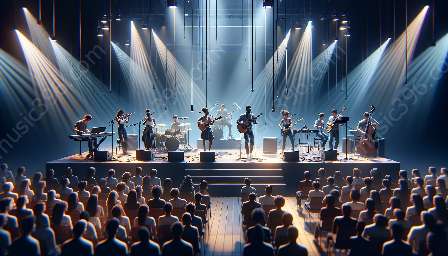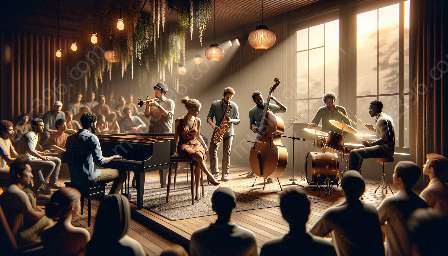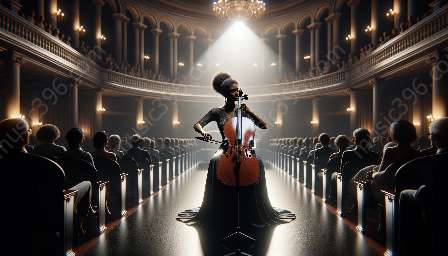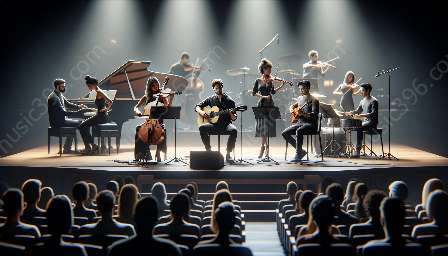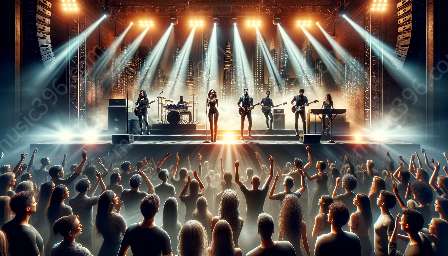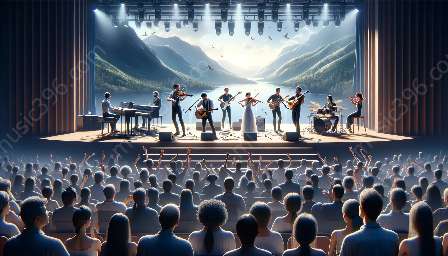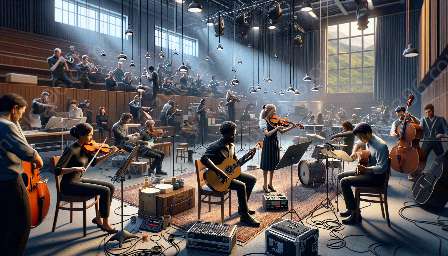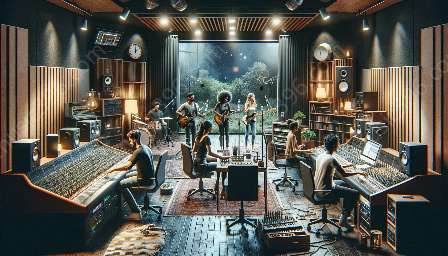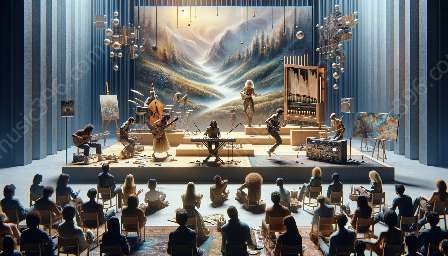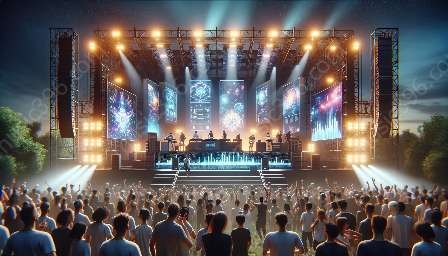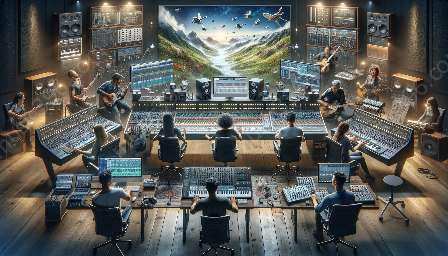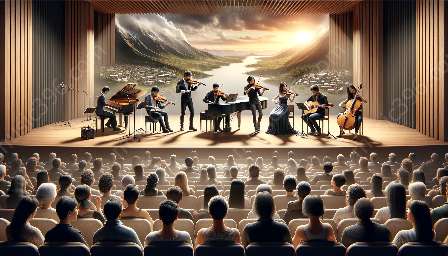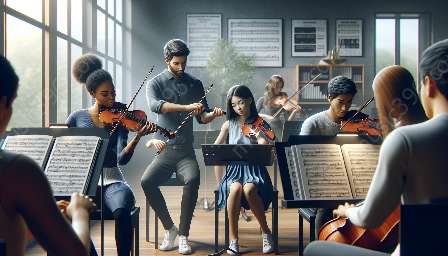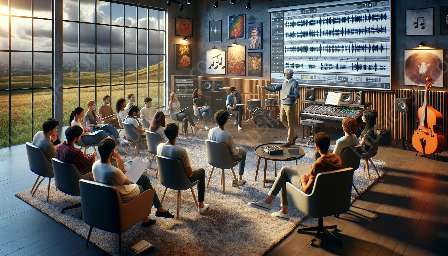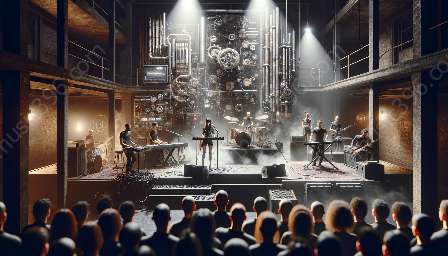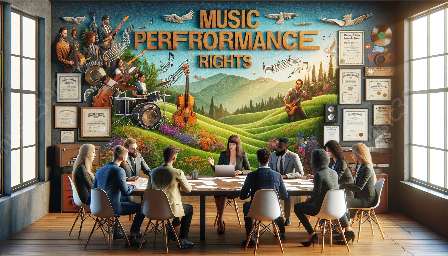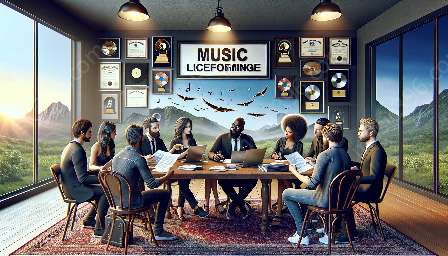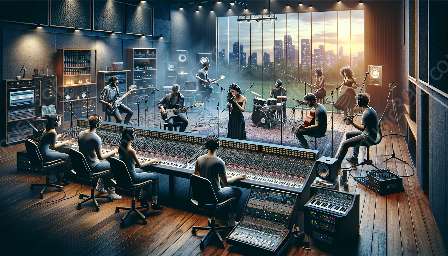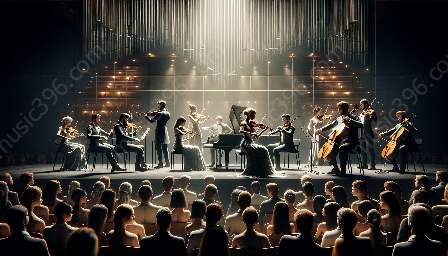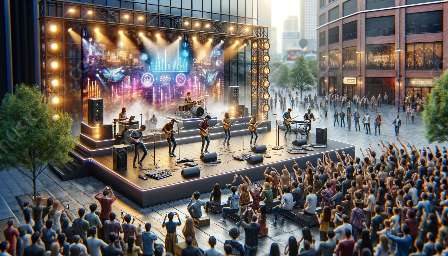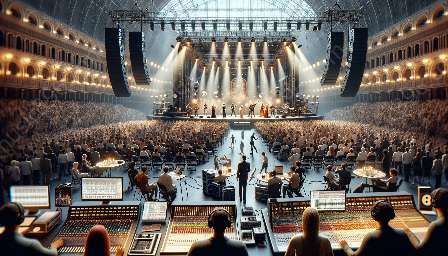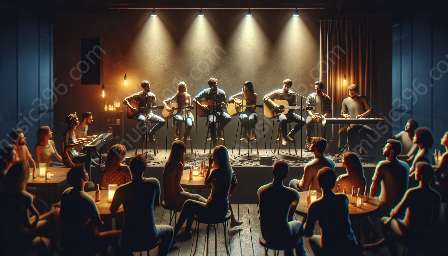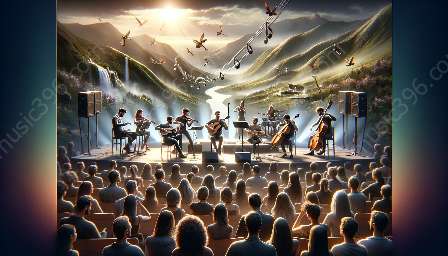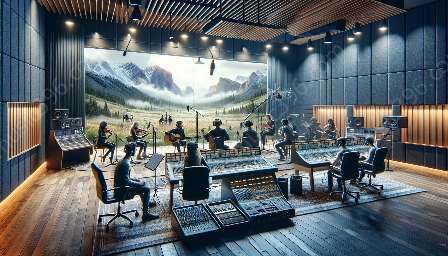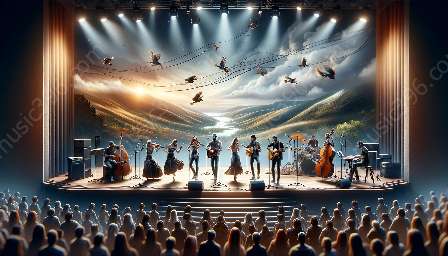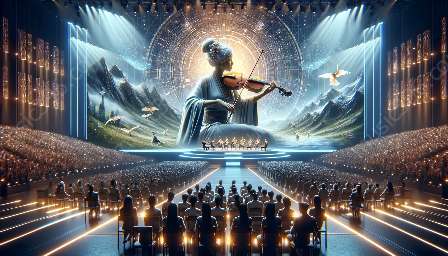Technology and music have long been intertwined, with digital innovations reshaping the way music is produced, distributed, and consumed. One crucial aspect of this intersection is music performance licensing, which governs the legal rights and permissions required for the public performance of musical works. In this topic cluster, we will explore the impact of technology on music performance licensing, including the challenges and opportunities it presents, and how it shapes the landscape for musicians, rights holders, and consumers.
Digital Era and Music Performance Licensing
The digital era has revolutionized the music industry, offering new avenues for artists to create, promote, and share their music. With the rise of streaming platforms, social media, and digital distribution channels, the way music is consumed has changed significantly. As a result, the traditional methods of music performance licensing have faced challenges in adapting to these technological shifts.
The Role of Technology in Music Performance
Advancements in technology have expanded the possibilities for music performance, enabling artists to reach global audiences through live streaming, virtual concerts, and interactive experiences. These digital platforms have redefined what constitutes a music performance, blurring the lines between traditional live events and online showcases. As a result, music performance licensing has had to evolve to address these new forms of expression and ensure that artists' rights are protected in the digital realm.
Challenges and Opportunities
The intersection of technology and music performance licensing presents both challenges and opportunities. On one hand, the rapid pace of digital innovation has made it more complex to track and license music performances, especially in a global context. Licensing agreements must now account for diverse platforms, territories, and user behaviors, requiring sophisticated tracking and reporting mechanisms to ensure that rights holders are fairly compensated for their work.
However, technology has also created new opportunities for musicians to monetize their performances, reach targeted audiences, and engage with fans in innovative ways. With the use of data analytics, social media insights, and digital marketing tools, artists can leverage technology to enhance their performances and craft personalized experiences for their audience. This shift has led to new business models and revenue streams, encouraging creative use of music performance licensing to maximize the impact of digital platforms.
Legal Framework of Music Performance Licensing
From a legal standpoint, music performance licensing is governed by a complex framework of rights, royalties, and regulations. The advent of digital technology has further complicated this landscape, requiring careful consideration of copyright laws, licensing agreements, and intellectual property protections.
Digital Rights Management
Digital rights management (DRM) technologies play a crucial role in enforcing music performance licensing in the digital domain. DRM systems are designed to authenticate the legitimacy of digital content, prevent unauthorized copying or sharing, and manage access to licensed music performances. These technologies are essential for ensuring that artists' intellectual property rights are respected, even in the decentralized and fast-paced world of digital music distribution.
International Considerations
As digital music performances can transcend geographical borders, international considerations have become integral to music performance licensing. Cross-border licensing agreements, regional copyright laws, and global rights management systems play a significant role in facilitating the lawful use of music performances across diverse territories. Technology has become a key facilitator in managing cross-border licensing challenges and enabling seamless international cooperation among rights holders and music platforms.
Future Trends and Innovations
The future of technology and music performance licensing is ripe with possibilities. As the music industry continues to adapt to digital disruption, emerging trends and innovations are reshaping the landscape of music performance licensing.
Blockchain and Smart Contracts
Blockchain technology has garnered attention for its potential to revolutionize music performance licensing through transparent, secure, and decentralized ledger systems. Smart contracts powered by blockchain can automate licensing agreements, royalty payments, and rights management, streamlining the process and enhancing transparency for all parties involved. This technological innovation holds promise for resolving complex licensing challenges in the digital realm.
Artificial Intelligence and Data Analytics
Artificial intelligence (AI) and data analytics are poised to play a pivotal role in shaping the future of music performance licensing. AI-powered systems can analyze music usage patterns, identify potential licensing opportunities, and optimize royalty distributions with unprecedented efficiency. By harnessing big data and machine learning algorithms, technology can empower rights holders to make informed decisions and maximize the value of their music performances in the digital ecosystem.
Immersive Technologies and Virtual Reality
Immersive technologies such as virtual reality (VR) and augmented reality (AR) are redefining the concept of music performance, offering interactive and immersive experiences for audiences. These technologies pose unique challenges and opportunities for music performance licensing, as they introduce new dimensions of user engagement and content delivery. As VR concerts and AR-enhanced performances gain traction, the legal aspects of licensing these innovative experiences will be a focal point for rights holders and legal authorities.
Conclusion
The intersection of technology and music performance licensing is dynamic and multifaceted, presenting a captivating landscape shaped by digital innovation and legal complexities. As technology continues to revolutionize the music industry, the evolution of music performance licensing will be instrumental in ensuring fair compensation, protecting artists' rights, and fostering a vibrant ecosystem for music performances in the digital age.


